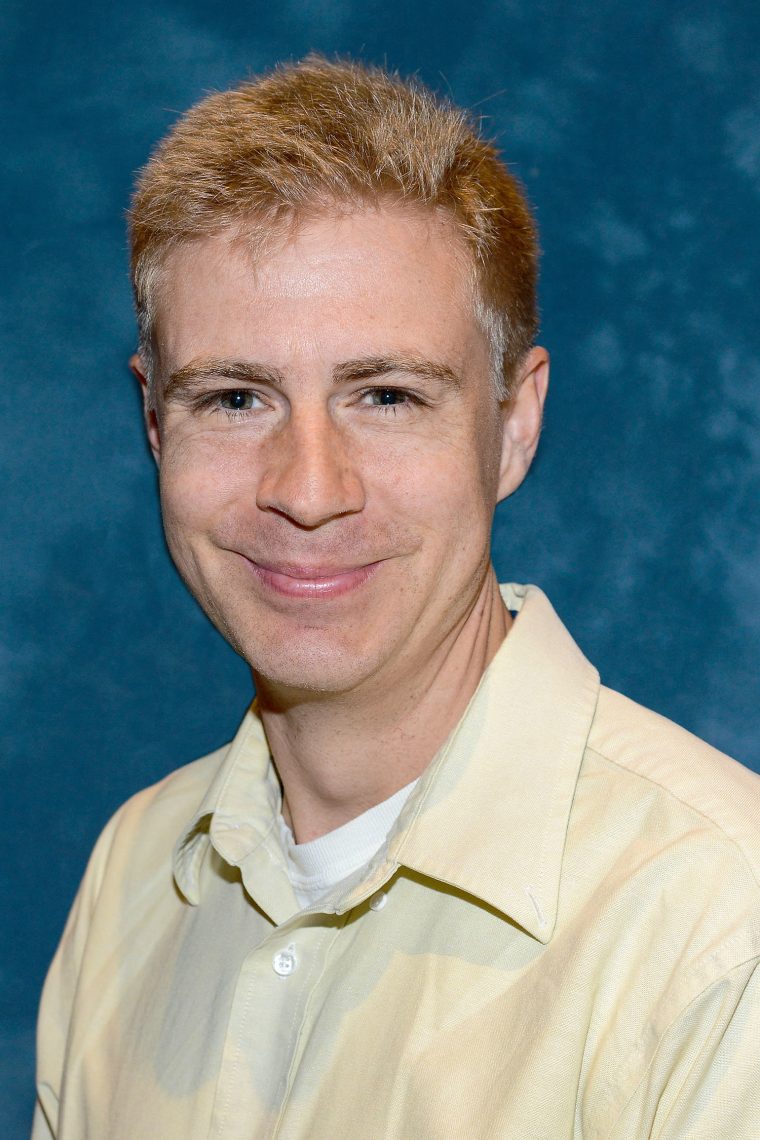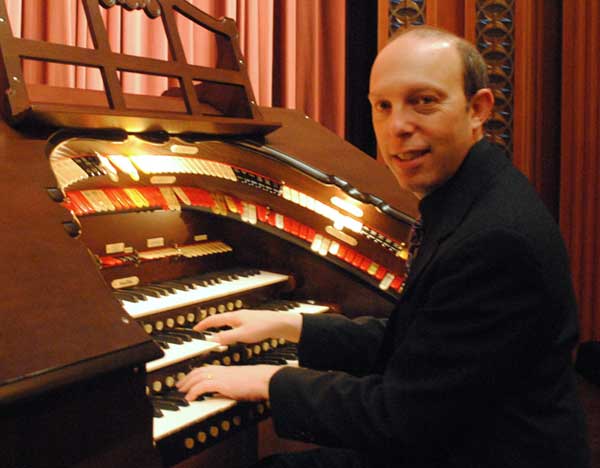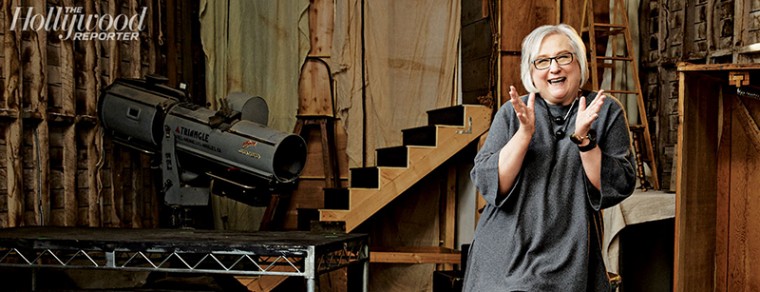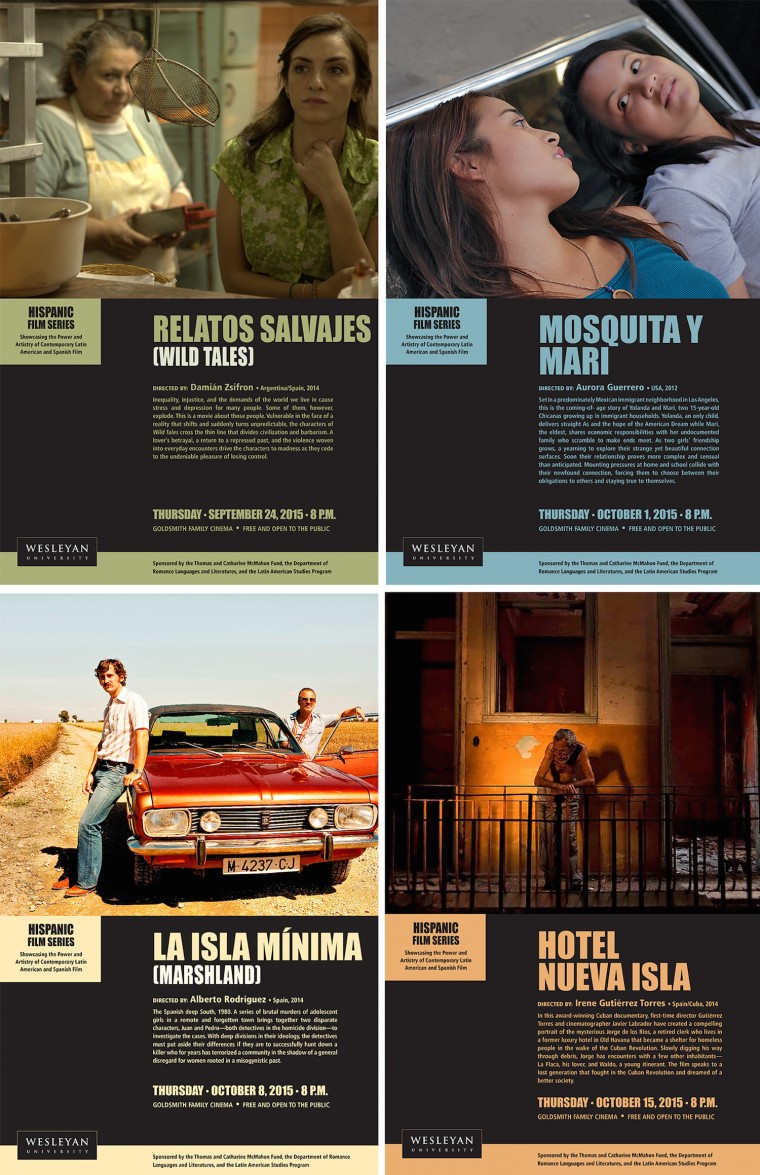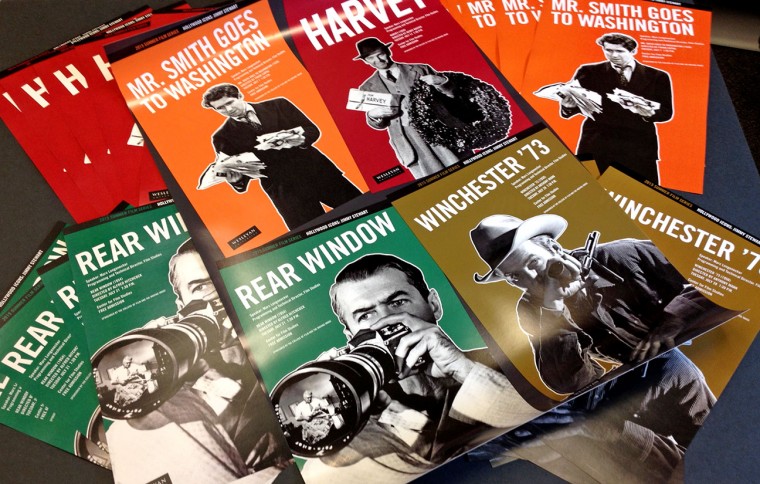We Together, a short film by Henry Kaplan ’10, has been accepted into the Slamdance Film Festival and will be playing in Park City, Utah, later this month. Slamdance Film Festival runs alongside Sundance Film Festival every year, and is self-described as “a showcase for raw and innovative filmmaking,” with a focus on new and emerging artists, filmmakers, and storytellers. We Together is a seven-minute long story of a zombie who comes to remember the person who he used to be, before he was a zombie. “The film premiered online this fall and garnered a lot of buzz from the online…
As an undergraduate film studies major in the early 2000s, Michael Slowik admired how Wesleyan's film faculty emphasized "their unabashed enthusiasm for movies," the history of film and ways films impacted the audience. "These were things I closely connected with," Slowik said. Slowik, who graduated from Wesleyan in 2003 with a BA in film studies, was appointed assistant professor of film at Wesleyan this fall. His research interests include U.S. film history, film sound, film authorship and film's relationship to music and theater. "Nearly all of the film professors who were so influential to me are still at Wesleyan, so when…
On Tuesday, Nov. 1, “The Battle of Chosin,” a documentary produced and directed by Randall MacLowry ’86, aired nationwide as part of the PBS American Experience series. In the film, MacLowry told the story of this pivotal 1950 Korean War battle—the first major military clash of the Cold War—through the eyewitness accounts and archival footage of heroic survival despite freezing temperatures and bloody battle. A film major as an undergraduate who counts Corwin-Fuller Professor of Film Studies Jeanine Basinger as a seminal mentor, MacLowry is an award-winning filmmaker whose work spans more than 25 years. His previous film for American Experience…
Scott Higgins, chair and professor of film studies, delivered the keynote address during the 2016 SERCIA Conference, held Sept. 8-10 in Paris, France. The topic of his talk was “Benefits of Incoherence: Seriality in the Studio Era," largely based on book, Matinee Melodrama: Playing with Formula in the Sound Serial (Rutgers, 2016). SERCIA, an organization established in France in 1993, encourages teaching and research in English-speaking cinema. During the 22nd annual conference, Higgins joined film scholars from all over the world to explore links between the filmic form and seriality. "I argued that American sound-serials in the 1930s and 1940s, with incoherent…
Film studies major Adam McGill ’16 screened his short film Punked! at the Princeton Student Film Festival this summer. McGill’s comedy is about a punk rock singer and guitarist named Dale, whose allegiance to his music is challenged when a new romance enters his life. McGill filmed the short in the fall of 2015 as a senior thesis project at Wesleyan. During his time at Wesleyan, McGill was taught by Jeanine Basinger, the Corwin-Fuller Professor of Film Studies, who said, “I’m happy to see his work recognized outside the classroom. He joins a long line of Wesleyan film majors who have…
Ben Model, visiting assistant professor of film, is spending the summer months composing scores and arranging music with the Frederick Symphony Orchestra in Frederick, Maryland. Model, a silent film accompanist, performs on both piano and theater organ. The orchestra will perform a concert on July 20 at Baker Park in Maryland, including Charlie Chaplin's The Immigrant; Buster Keaton's Cops; and Felix the Cat in Pedigreedy. Model also is performing live music this summer, including a Leo McCarry retrospective at the Museum of Modern Art; at a festival in South Korea in August; and a silent movie festival in Northern Norway in early September. Learn more about Model online…
Jeanine Basinger, Corwin-Fuller Professor of Film Studies, was recently featured in a Hollywood Reporter article “The Professor of Hollywood,” by film historian and best-selling author Sam Wasson ’03, who studied with Basinger at Wesleyan. The magazine brought together 33 of her former pupils who work prominently in the film industry for “an A-list class reunion” photo—and several of them talk about how Basinger inspired them, encouraging their self-expression while also sharing with them her love for the medium. In the article, Basinger discusses how and why she came to devote her life to the study of film and how working…
On Thursdays in September and October, Wesleyan is hosting a four-part Hispanic Film Series showcasing the power and artistry of contemporary Latin American and Spanish film. All films will be shown at 8 p.m. in the Goldsmith Family Cinema, and are free and open to the public. The series is sponsored by the Thomas and Catharine McMahon Fund, the Department of Romance Languages and Literatures, and the Latin American Studies Program. The films being shown are as follows: Sept. 24–Relatos Salvajes (Wild Tales) Oct. 1–Mosquita Y Mari Oct. 8–La Isla Mínima (Marshland) Oct. 15–Hotel Nueva Isla More details on each film…
Jeanine Basinger, the Corwin-Fuller Professor of Film Studies, curator of the Cinema Archives, spoke with The Huffington Post about why today's television is so good. TV has come a long way since 1961 when Federal Communications Commission Chairman Newton Minow proclaimed television "a vast wasteland" in an address to the National Association of Broadcasters. The article explores how advances in technology and television production have vastly improved the experience for viewers. One of the biggest changes was the introduction of DVR and streaming services, which mean we're no longer slaves to the television schedule, required to sit on the couch for an hour when…
This July, Wesleyan's 2015 Summer Film Series presents "Hollywood Icons: Jimmy Stewart," a four-film series sponsored by Wesleyan's College of Film and the Moving Image (CFILM). Films will be shown at 7:30 p.m. on Tuesdays in July at the Center for Film Studies. All films are free and open to the public and will be preceded by an introduction by Marc Longenecker, CFILM's programming and technical director. The "Hollywood Icons: Jimmy Stewart" film series includes Mr. Smith Goes to Washington (July 7), Harvey (July 14), Rear Window (July 21), and Winchester '73 (July 28). See Wesleyan's Summer Film Series website for more information.
In its most recent meeting, the Board of Trustees conferred tenure on Hari Krishnan, associate professor of dance. He joins seven other faculty members who were awarded tenure earlier this spring. In addition, seven faculty members were promoted to Full Professor: Mary Alice Haddad, professor of government; Scott Higgins, professor of film studies; Tsampikos Kottos, professor of physics; Edward Moran, professor of astronomy; Dana Royer, professor of earth and environmental sciences; Mary-Jane Rubenstein, professor of religion; and Gina Athena Ulysse, professor of anthropology. Brief descriptions of their research and teaching appear below. Associate Professor Krishnan teaches studio- and lecture-based dance courses on Mobilizing Dance: Cinema, the Body, and Culture…
Though movie sequels had been successful in the past, it was a huge surprise when The Empire Strikes Back turned out to be as popular as the original Star Wars film, Jeanine Basinger, the Corwin-Fuller Professor of Film Studies, told the website Boing Boing for a story reflecting on Empire 35 years after it arrived in cinemas. “When you have set a level that you set with Star Wars in terms of financial success, critical success, audience success, quality of production, greatness of storytelling, you don’t really think even if the second one is going to be good that it can hit that same level twice…



